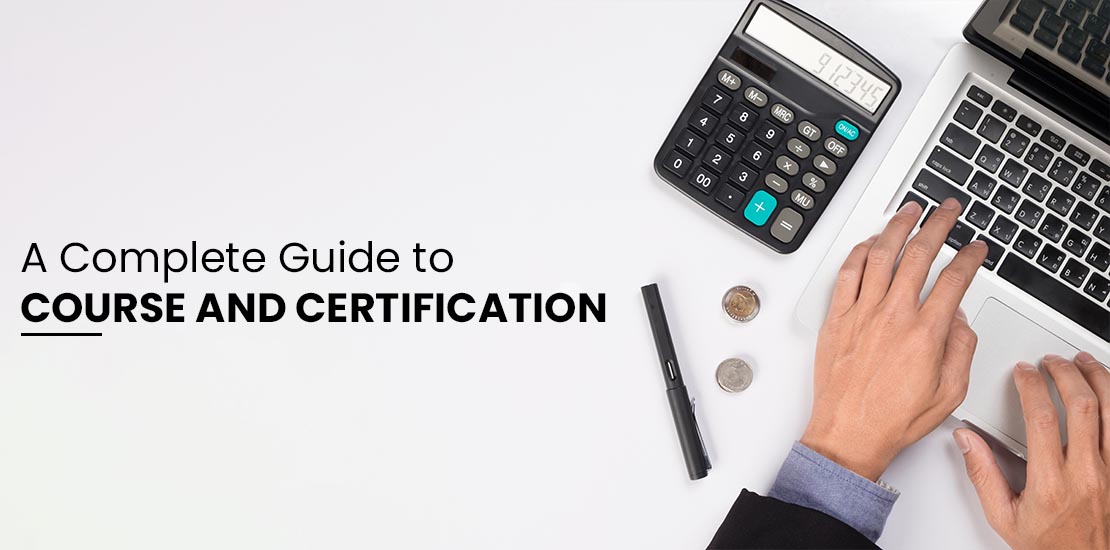
# What are the key components of a GST accounting course syllabus?
# How can a GST accounting course help small business owners?
# What are the latest updates to GST laws, and how do they affect the accounting course content?
# What are the prerequisites for a certificate course in GST, and how can you prepare for them?
# Which is the best institute that provides certificate course in gst
A GST accounting course syllabus typically covers a range of topics related to Goods and Services Tax (GST) in India. The course is designed to provide learners with the knowledge and skills necessary to manage GST compliance and accounting tasks efficiently. Some of the key components of a GST accounting course syllabus include an introduction to GST, GST registration, input tax credit, invoicing and accounting under GST, GST returns, and e-way bills.
The course may also cover advanced topics such as GST audits, assessments, and appeals. The syllabus may incorporate practical training through case studies, assignments, and live projects to enable learners to apply their knowledge in real-life scenarios.
Small business owners in India must comply with GST laws to avoid penalties and ensure a smooth business operation. A GST accounting course can help small business owners understand the various GST compliance requirements and simplify their accounting processes.
The course equips business owners with the knowledge and skills to manage GST registration, invoicing, filing returns, and handling input tax credits. Business owners can learn about the latest updates to GST laws and how to comply with them. By enrolling in a GST accounting course , small business owners can reduce the risk of non-compliance, avoid penalties, and save time and money.
The Indian government frequently updates GST laws to address the changing business landscape and economic conditions. Some of the recent updates to GST laws include the introduction of e-invoicing, changes in GST return filing procedures, and the implementation of the e-way bill system.
These updates may impact the accounting course content, as the course must be updated to reflect the latest changes in GST laws. For example, the syllabus may include a new module on e-invoicing and e-way bills, along with changes to GST return filing procedures. The course may also incorporate practical training to help learners adapt to the latest updates in GST laws.
The prerequisites for a certificate course in GST may vary depending on the institution offering the course. However, most institutions require candidates to have a basic understanding of accounting principles and knowledge of the Indian taxation system.
To prepare for a certificate course in GST, candidates can review basic accounting concepts such as ledgers, balance sheets, and profit and loss statements. They can also read up on GST laws and regulations to gain a basic understanding of the GST system in India.

After completing a GST accounting course, learners can pursue various career paths in the accounting and finance industry. Some of the job roles available include GST accountant, GST consultant, GST analyst, GST officer, and GST auditor.
The salaries offered to professionals in the GST accounting domain may vary based on the job role, experience, and location. However, entry-level professionals can expect to earn an average salary of INR 3-5 lakhs per annum, while experienced professionals can earn up to INR 10-15 lakhs per annum.
A GST certification is a formal recognition of a person's knowledge and skills in GST compliance and accounting. Obtaining a GST certification can help professionals demonstrate their expertise in GST laws and regulations, and it can enhance their career prospects in the accounting and finance industry.
On the other hand, a certificate course in GST is an educational program designed to provide learners with the knowledge and skills to manage GST compliance and accounting tasks. The course may or may not lead to a formal certification, but it can equip learners with the necessary skills to pursue a career in the GST accounting domain.
GTIA is a leading professional organization that provides certificate course in gst training, and consultancy services. GTIA offers comprehensive training programs that cover all aspects of GST compliance and accounting. Its courses are designed to provide learners with practical knowledge and skills that can be applied in real-world scenarios. GTIA is a recognized professional organization in the field of GST compliance and accounting. Its certification is highly valued by employers and can enhance career prospects for individuals in this field.
A GST accounting course can help individuals gain a deep understanding of GST compliance and accounting, which can enhance their career prospects in the accounting and finance industry. The course equips learners with the necessary skills to manage GST registration, invoicing, filing returns, and handling input tax credits. Obtaining a GST certification can further demonstrate their expertise in GST laws and regulations, and it can enhance their career prospects. With the right skills and training, individuals can pursue various job roles in the GST accounting domain and make a positive impact on their career growth. Enquire now.